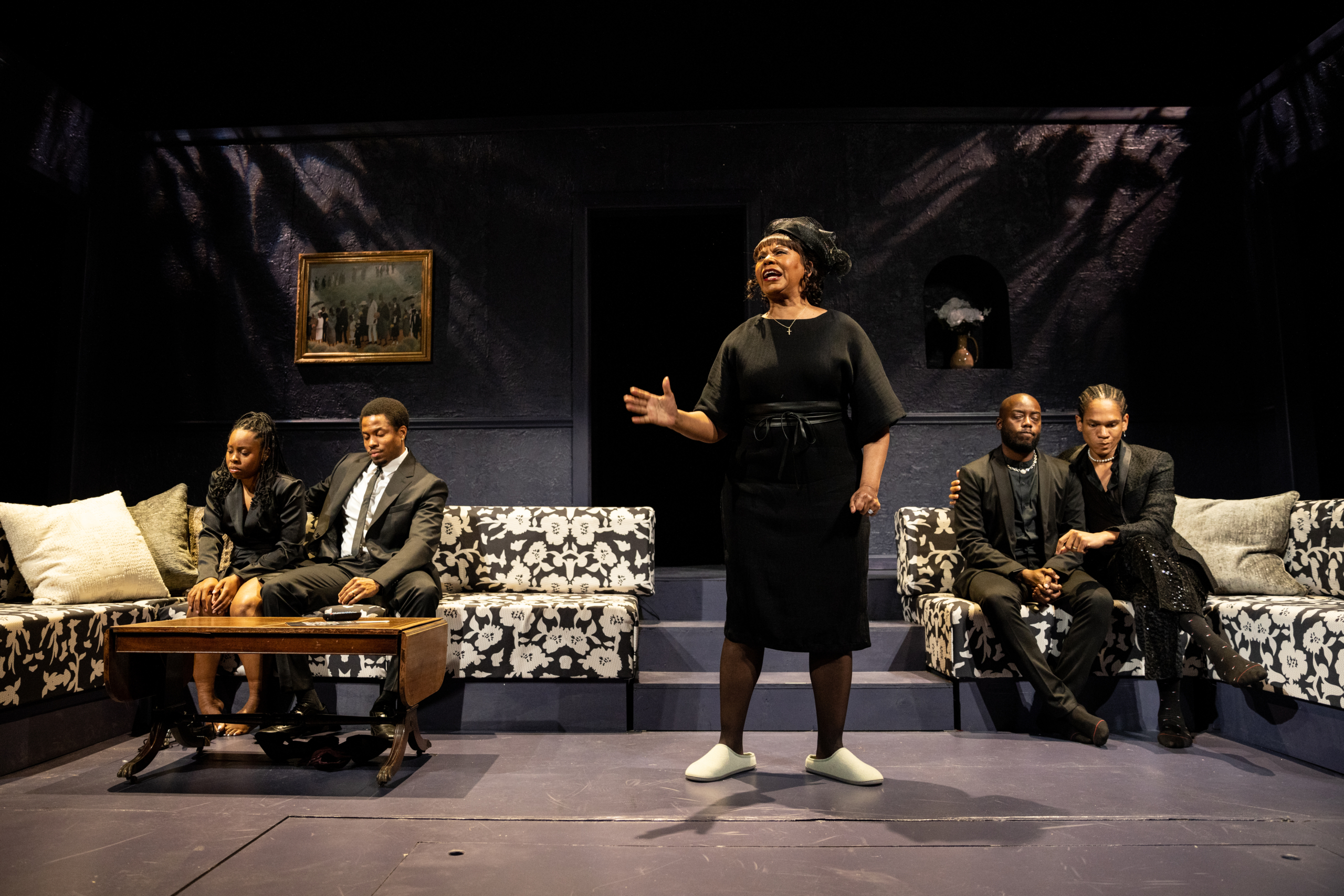At the first hint of demonic possession, a combination of puppetry and light effects in the Connelly Theater, an audience member exclaimed: “Oh no! Not today! Not today!” The audience laughed collectively in the dark. It was a sign that something had gone right. The play held its audience safely in its hands, saying this is for you, enjoy it your way.
“Demons” is a dark comedy about a Black family grieving their patriarch, while being haunted by a demon who turns out to not be quite prepared for the task at hand. Written and directed by Brooklyn playwright named Keelay Gipson, and produced by the Bushwick Starr, “Demons” is structured around the stages of grief as characters with names like Mama, Sissy, Bubba gather in the days after the funeral. Danily, a furry red monster with petulant teenage sensibilities, then accidentally possesses Bubba after being pushed into a haunting he wasn’t trained for; there’s also an overly-optimistic father- demon involved as well. Delightfully, it turns out demon puppets also have daddy issues.
Gipson’s play shows sophistication in its use of surrealist elements, which works because the world Gipson creates chooses just one device to draw us in. Animated by puppet design put together by Cedwan Hooks, the monster and the Jim Henson-esque purgatory he hails from are the most effective parts of the show. By fleshing out one streamlined, surreal device, the script encourages theater-goers to mull over the thematic questions at play, like “is grief a form of love?,” or “how can we forgive the dead?,” instead of distracting them with more pragmatic ones about the world’s experimental elements.
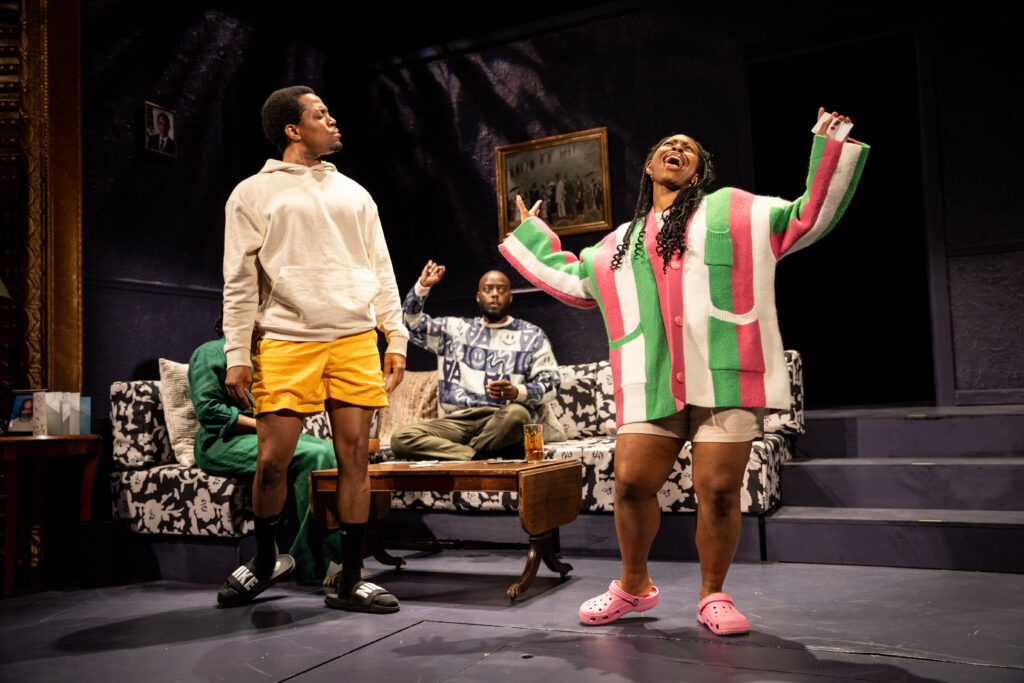
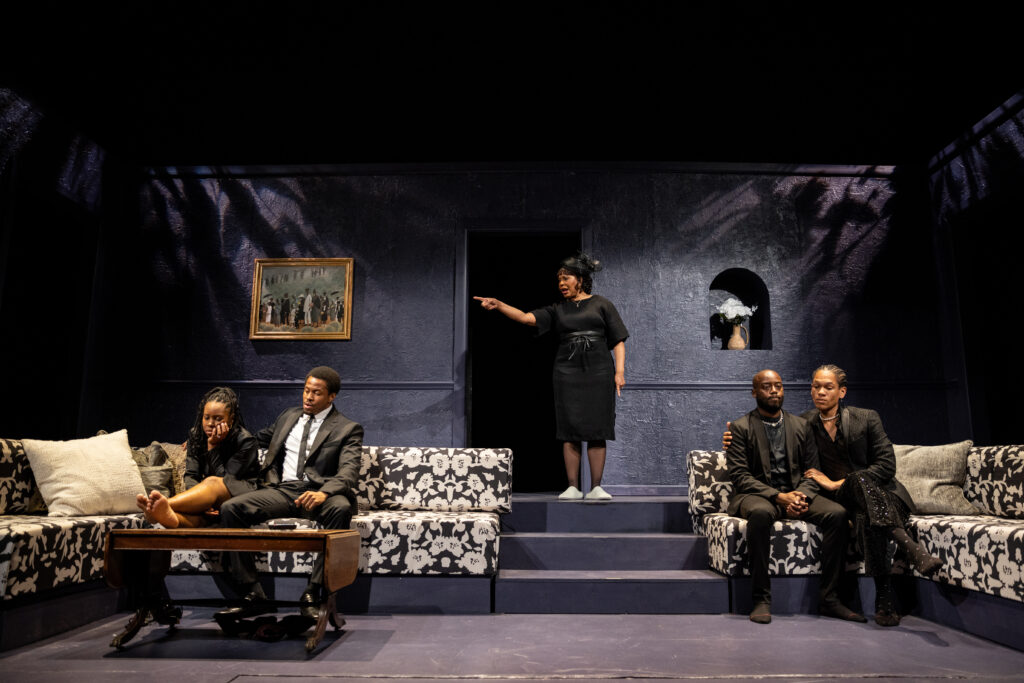
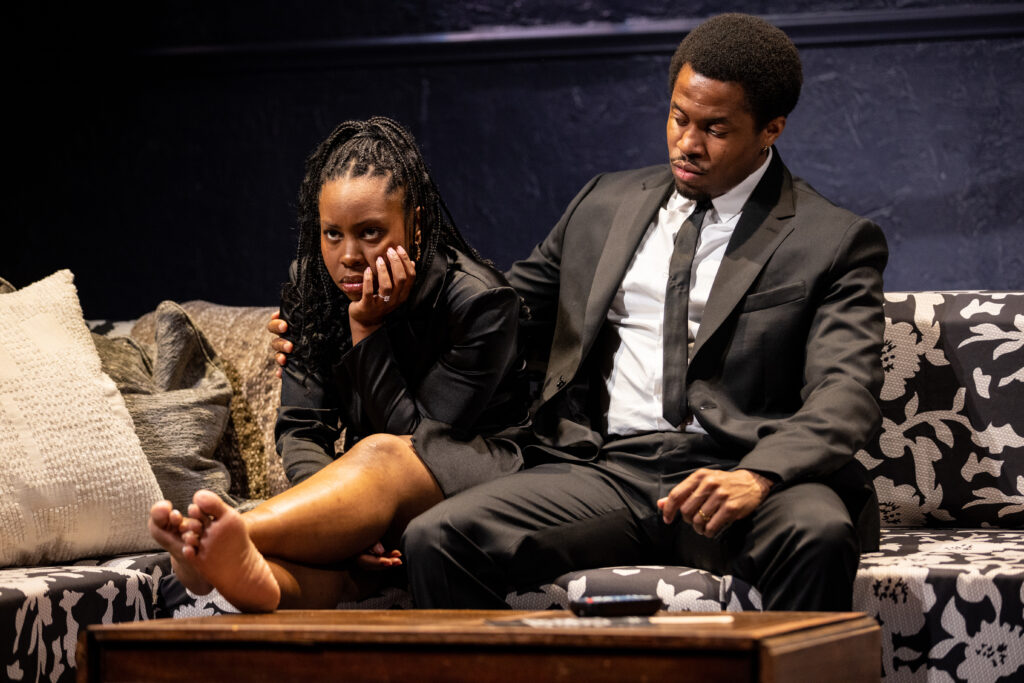
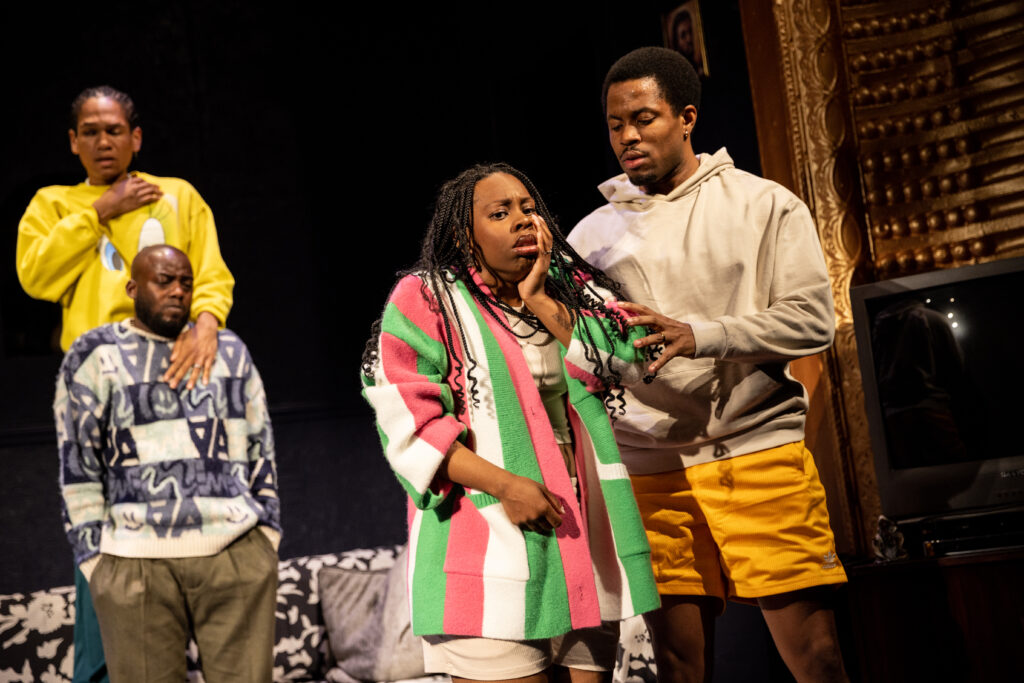
The standout performances among the non-puppets come from Donell James Foreman and Ashton Muniz, who play a gay couple whose opposing energies bounce off each other with a kind of delicious energy. Foreman plays Bubba with a quiet nervousness, a bottled energy that’s ready at any moment to explode. Meanwhile, Bubba’s “friend,” played by Muniz, has a sing-song theatricality, but can pull his performative nature back to match hushed the emotional moments when needed. The result are three-dimensional characters who play with stereotypes while still feeling astoundingly real, tethering the play’s surrealist aspects to a tangible naturalism.
Unfortunately, the show’s female characters are not prodded with the same depth, with Mama and Sissy functioning on the level of angry-black-woman caricature. Gipson’s play does not give them anything near the subtlety or emotional range that his men are afforded. They’re guilty of the worst crime female characters can commit—being more unlikeable than interesting.
But the run was a triumph for its local production company, the Bushwick Starr, which proved that they can pull off thoughtful evocative productions, even a borough away from their blackbox home on Starr Street.
Images taken by Maria Baranova, courtesy of the Bushwick Starr.
For more news, sign up for Bushwick Daily’s newsletter.
Join the fight to save local journalism by becoming a paid subscriber
